T. Rowe Price: The only thing that matters in markets right now is not inflation
Something big is about to break, and you need to be nimble. That was the main message from T. Rowe Price's Head of International Fixed Income Arif Husain, who addressed clients at an investment strategy webinar on Tuesday.
Husain's fund, which has produced a 35%+ total return to investors since its 2014 inception, argues that markets are at a "maximum convexity" point. In other words, the environment is unstable and your investment strategy needs to reflect that. But he also says most investors are asking the wrong questions, adding that the answers to those are exacerbating already sour returns.
For instance, investors should not be asking whether bond yields have peaked. Although that's a pertinent question with a black-or-white answer, he says the real issues are far more nuanced.
It's a strategy that has paid off. Not only has it outperformed its benchmark significantly (in USD and AUD terms), but it's also outperformed the S&P 500 this year. That makes him part of a rare breed - a fixed-income fund manager who's outperformed his own asset class and others as well.
This wire will concentrate on Husain's thesis and the questions he is asking. We'll also look at a couple of his most interesting ideas for investors.
Everything has changed
Spoiler alert: The world has changed dramatically. Although that shouldn't be news to anyone who works or deals in financial markets (i.e. you, dear reader). But what might be news is how little most investors have done to adapt to this changing world. It's here Husain draws the line.
"The big takeaway is you have to be acting differently. Doing nothing is a very dangerous outcome," Husain told clients during the webinar.
But should we have seen this coming? According to Husain, the answer is yes. Some of the themes from Husain's last trip to Australia have not changed (deglobalisation, extreme weather, and changes in demographics to name a few). But what has changed is the transition to quantitative tightening by central banks around the world. It's a simple move, but it explains just about everything you need to know about 2022.
The stimulus is gone
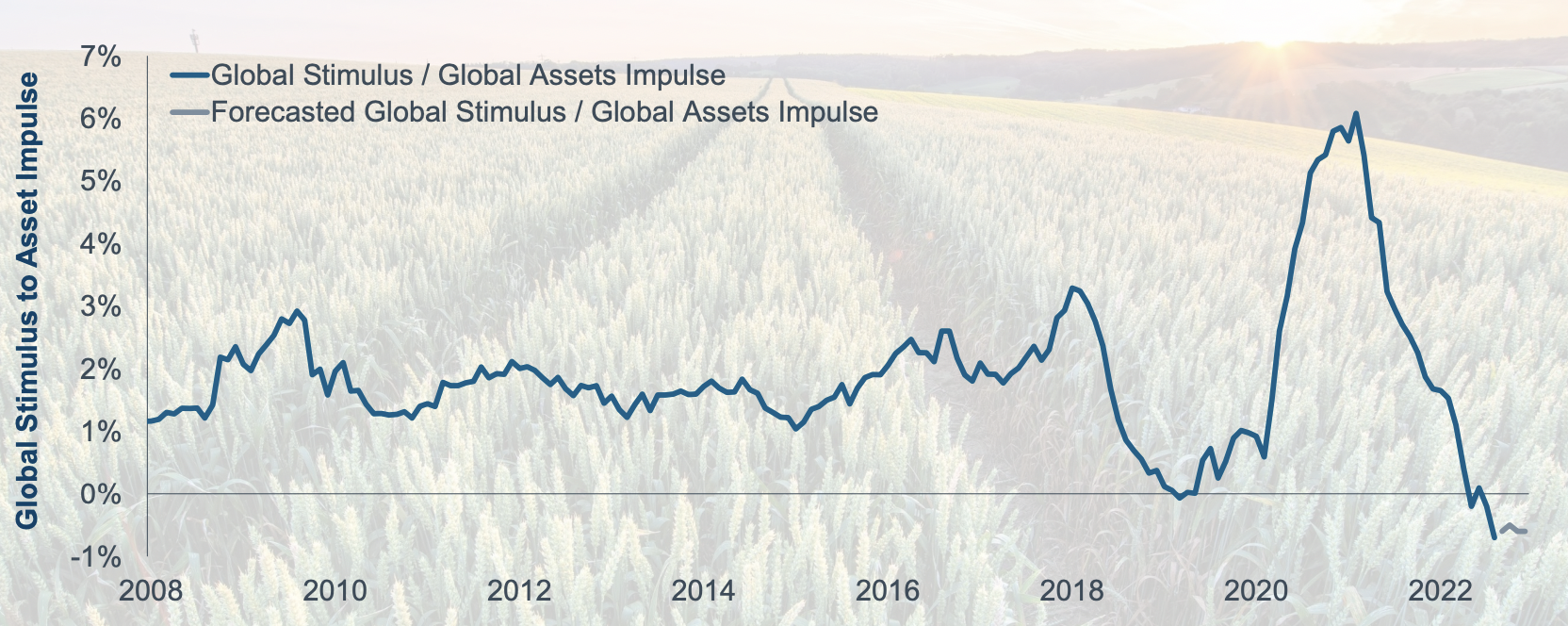
This trend is not about to suddenly reverse in 2023, and Husain argues that means things won't get better immediately.
"Quantitative tightening is very much back-end loaded," Husain said. "It doesn't get any better until maybe Q2 of next year. We have a lot of internal debate about the actual turning point."
Don't mix up the disease and the symptom
At the moment, a lot of market participants, professionals and punters alike, believe inflation is public enemy number one. But Husain thinks differently. He argues inflation is not the underlying problem, but rather a symptom of years of cumulative stimulus.
"What people get confused with is they mistake inflation for that underlying condition. To me, it's purely a symptom. If you try to treat the symptom, you effectively get a worse outcome," Husain said.
That's not to say inflation is a big problem. But it is just one of the products of the COVID-19 era, and Husain argues everything from the work-from-home dynamic to ESG is all inflationary in the long term. But I know the question you all just want an answer to - has inflation peaked?
"The bottom line is we might be near, but it won't come down as quickly as people think," Husain said.
Why the global cure is Australia's gain
The cure is widely seen as the rapid pace in rate hiking from central banks. Just about every central monetary authority other than China or Japan is part of the way through a relentless rate-hiking frenzy. But Australia, in the words of BondAdviser's John Likos from the latest edition of Signal or Noise, is different and likes to think of itself as such.
So when the Reserve Bank pivoted from a 50 basis point hike to 25 earlier this month, the rest of the world's collective jaw dropped. Is this a pivot and can we believe it? Well, Husain argues the step down is a big positive for Australian assets.
"Maybe Australia will turn into a little safer haven in this cycle," Husain said. "Certainly Australia is one of our biggest positions ... and most favoured long positions."
Why Europe's woes are EM's gains
We also know Europe's story extensively. Soaring gas and crude oil prices have made operating a business (and life, for that matter) very difficult. It's one of the few storylines where the image, or chart, in this case, speaks louder than words. And although it's mostly cyclical, there are structural factors (energy dependence, for example) that have exacerbated the crisis.
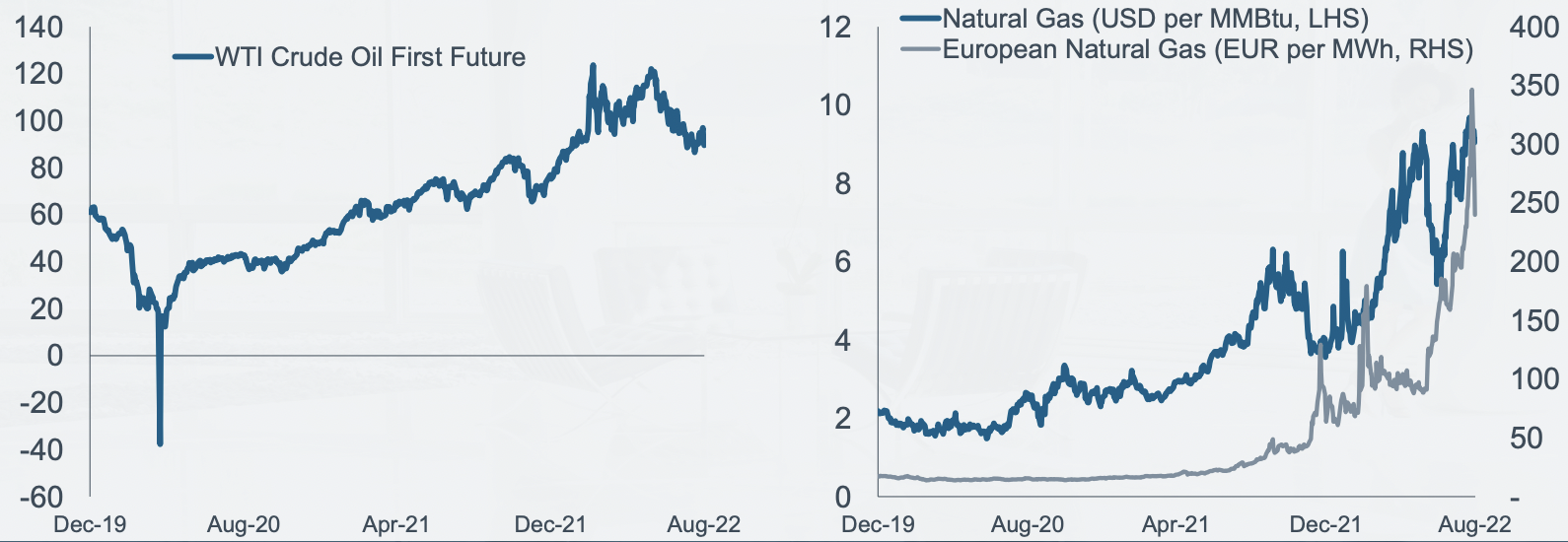
What rice and bonds have in common
And where energy prices are causing havoc, you can bet food prices are not far behind. And while the chart above catches everyone's attention, there is another chart that proverbially raises Husain's eyebrow. When all is said and done, it's emerging markets that feel the most of the pain when food prices soar.
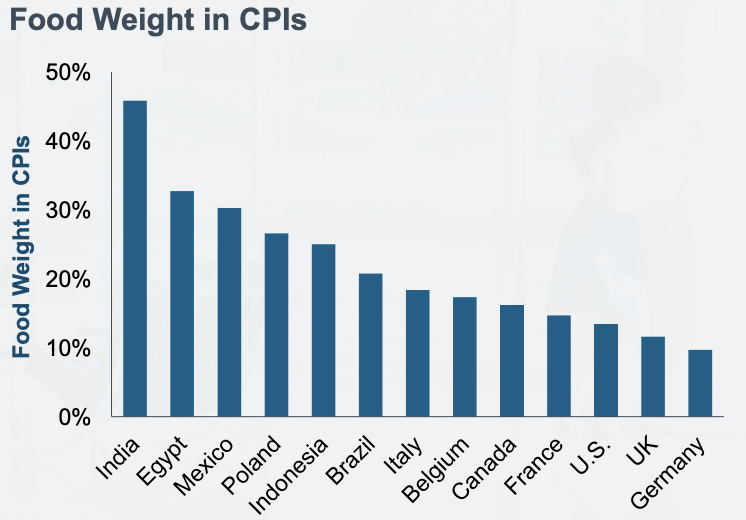
But it's also emerging markets that are nearing the end of this hiking cycle as a result. That, in Husain's view, makes these assets potentially more attractive.
"The only currencies outperforming the US Dollar at the moment are ones like the Brazilian Real and the Mexican Peso because they have hiked rates so much," Husain noted.
He went on to explain the best-performing regions for fixed-income markets have an interesting correlation with the fact that rice is the main carbohydrate in those economies. As Husain put it, "this stuff really matters".
Three questions to ask yourself in 2023
The rest of 2022 and 2023 are presenting three key risks which are central to the T. Rowe Price investing thesis. They are not going away, Husain clarified, and so these are three questions investors need to have in the back of their minds for some time.
How much further can yields rise?
The solution is to be active, and not to be afraid to short assets when the evidence is compelling. The case in point is the Dynamic Global Fund where there is a range of short positions (they expect bond yields to rise) and long positions (they expect bond yields have petered out). This explains why Australia is a long position while the team is short UK government bonds (this recently became a structural short due to what Husain called "the cost of incompetence").
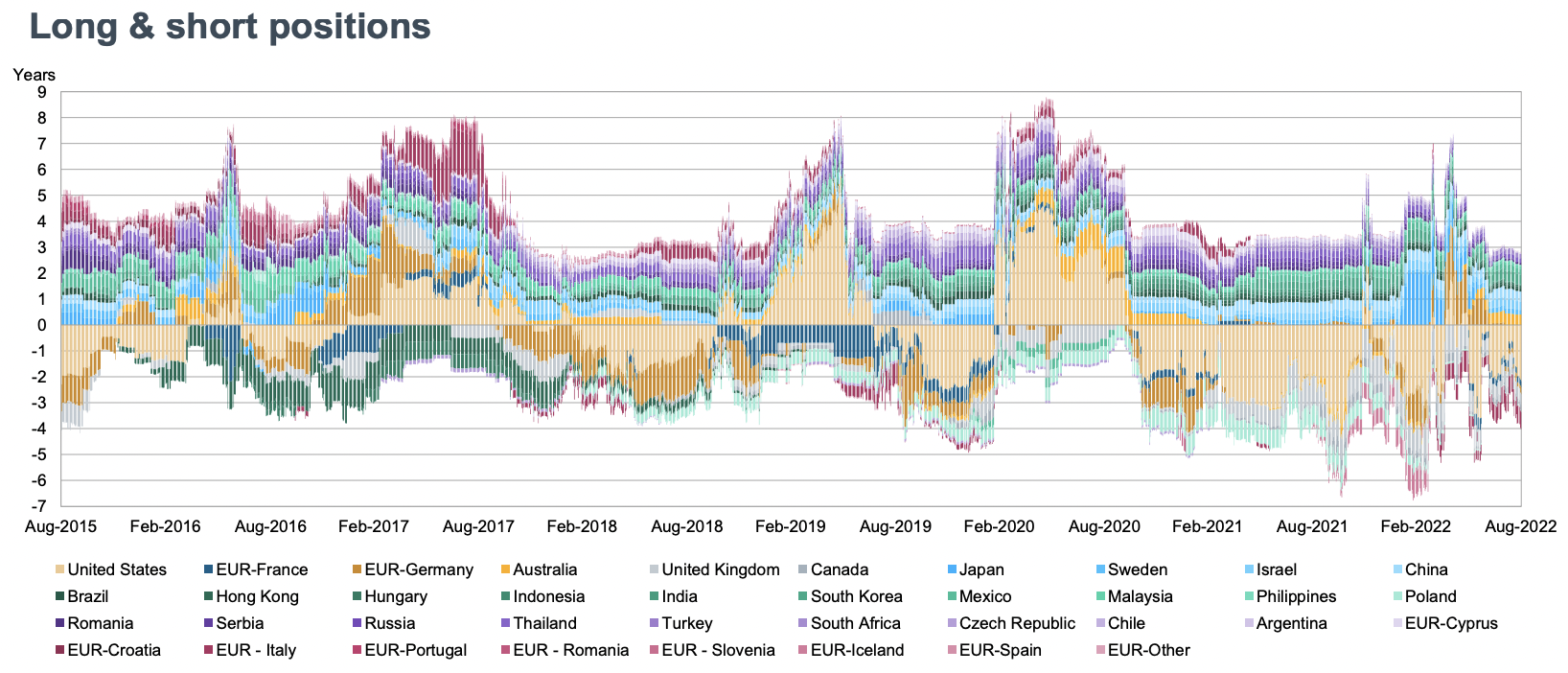
In short, don't predict when yields will peak but see whether the process suggests bond yields are peaking out. There may be an opportunity to add bonds to a position soon, even if a soft landing is still unlikely. Either way, be active and be patient until the storm is over.
How much more volatility will we see in markets - and who loses out?
Volatility, in Husain's view, is similar to the domino effect. He says the secret is to understand the chain and pick up opportunities when others are too scared to touch them.
"Volatility starts with central banks," Husain said. "Massive central bank volatility leads to massive rate volatility which leads to massive curve volatility which leads to massive credit volatility which leads to the equity markets."
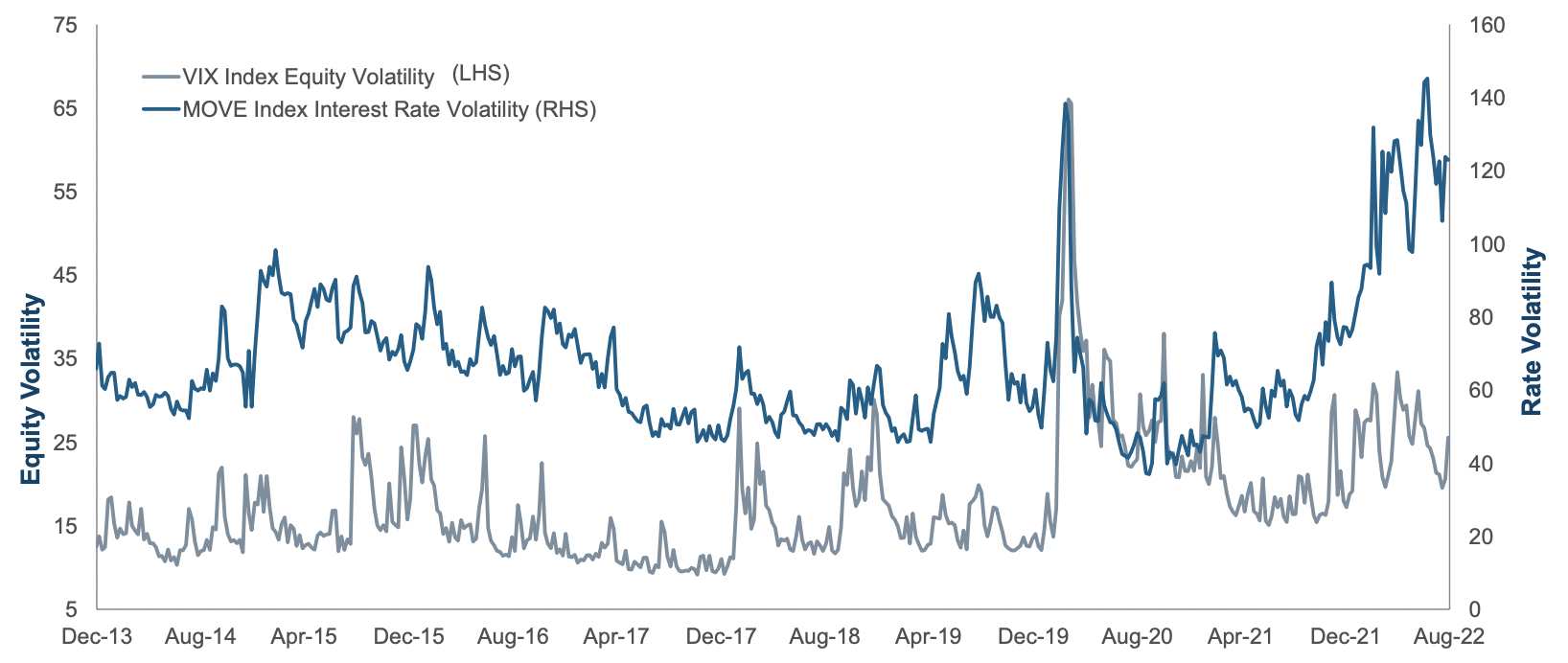
Here, it's not about the opportunity but the area to avoid. Credit, in Husain's view, is a no-go zone in the short term because the liquidity premia are not in the opportunity zone.
Has the traditional stock-bond correlation broken down for good?
Everyone wants their perfect mix of stocks and bonds. But as has been proven this year, the traditional 60/40 combination has crashed and burned spectacularly. The shift to quantitative tightening has helped fuel this move. Husain said managing these correlations is key, and recommended investors be considerate of what will actually be a good diversification tool in a 2022 portfolio.
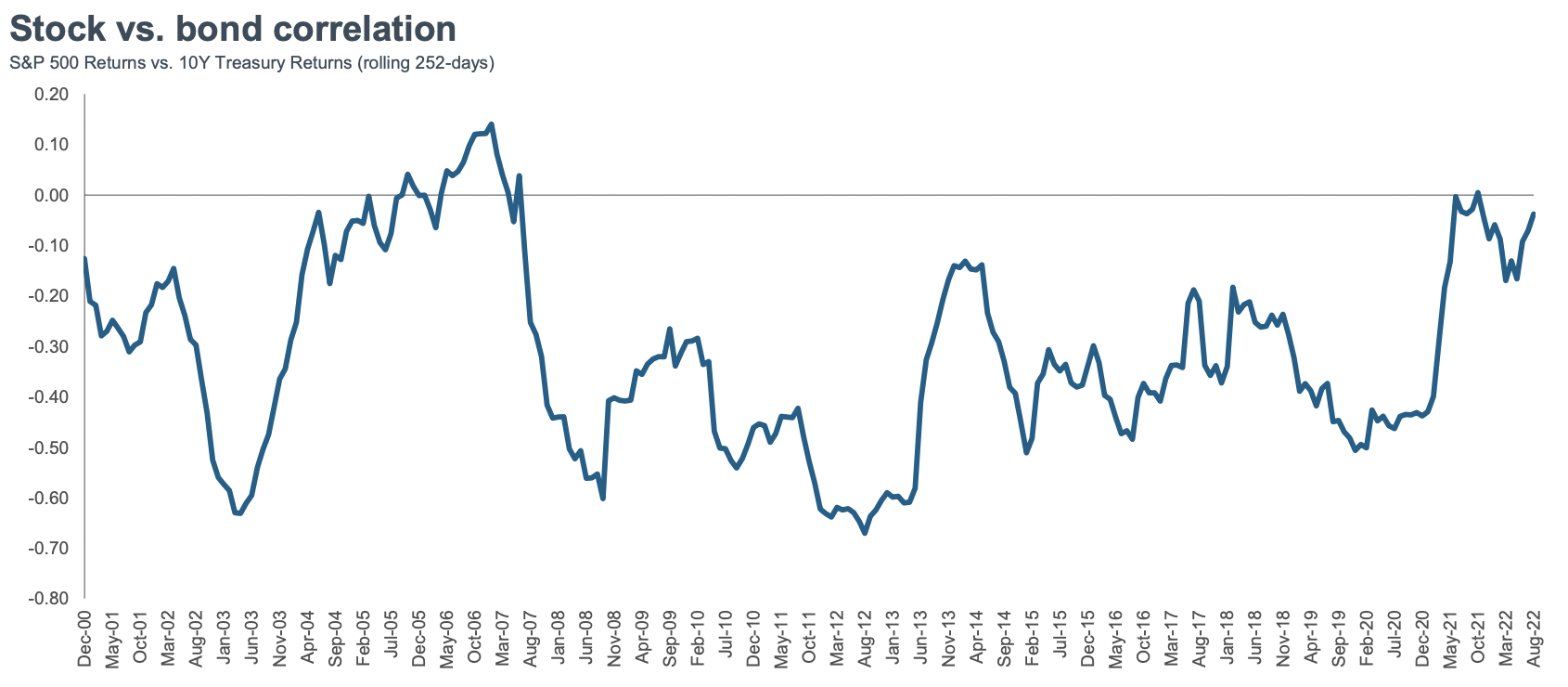
The last word
Husain finished off with a geeky sting - we are at a point of "maximum convexity". That means investors are in an unstable equilibrium. It's either going to end in a 2008-style meltdown in credit markets or a massive rally leading to a crash. Husain believes 2022 is going to be a repeat of 2008 but hasn't ruled out a rush to income creating an apocalypse in the bond market.
And remember - what happens in the bond market rarely stays in the bond market. You've been warned.
Never miss an insight
If you're not an existing Livewire subscriber you can sign up to get free access to investment ideas and strategies from Australia's leading investors.
I'll be in charge of asking the questions to Australia's best strategists, economists, and fixed income fund managers. If you have questions of your own, flick us an email: content@livewiremarkets.com
2 topics

